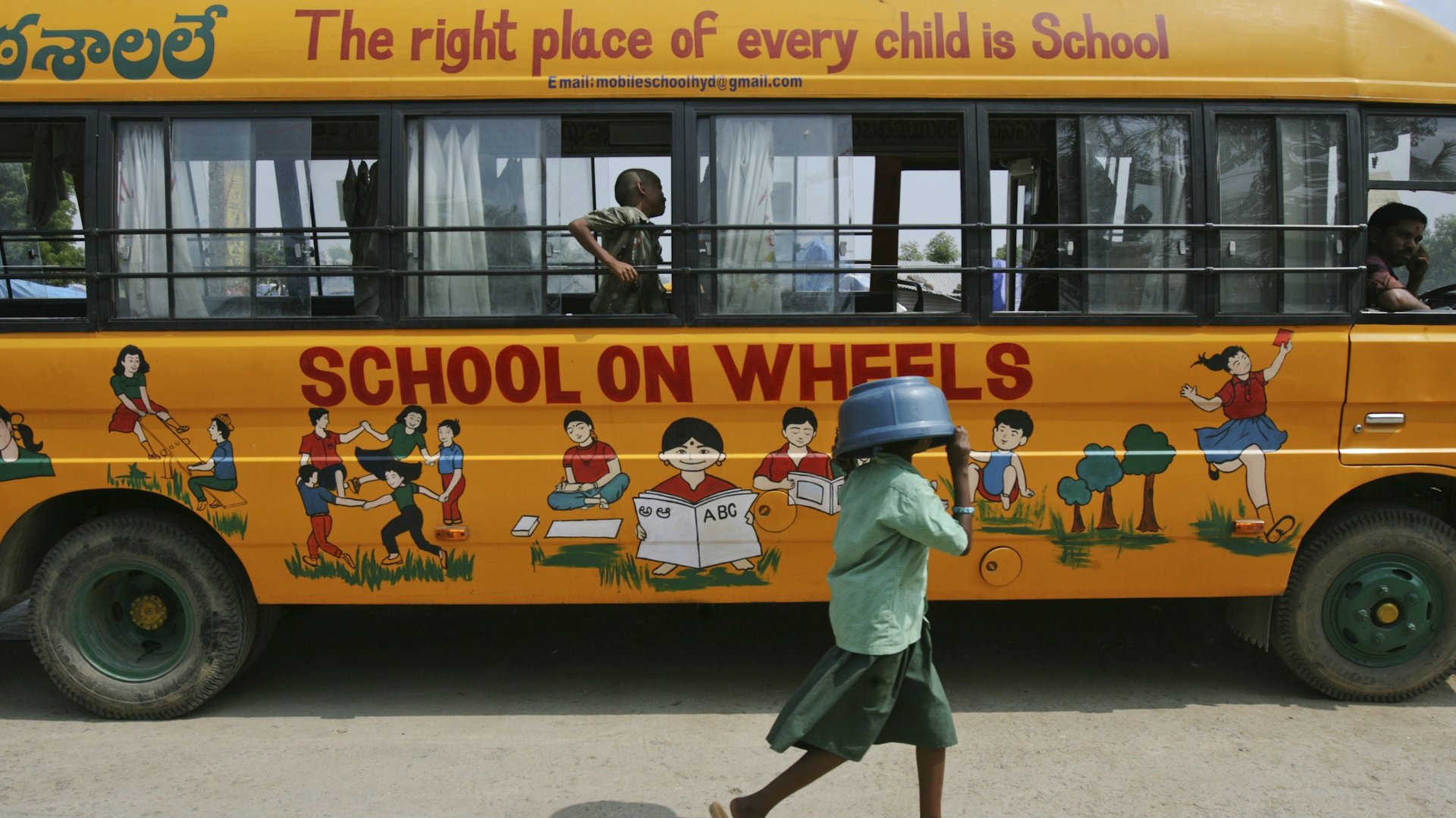India’s latest bribery target isn’t police or judges—it’s educators
Bribing in India happens about twice as much as the global average, according to an index released July 9 by Transparency International, which monitors corruption around the world. Although that ratio has remained roughly the same for the past two years, the proportion of bribery in India attributed to the country’s education system is growing.


Bribing in India happens about twice as much as the global average, according to an index released July 9 by Transparency International, which monitors corruption around the world. Although that ratio has remained roughly the same for the past two years, the proportion of bribery in India attributed to the country’s education system is growing.
Of the 1,025 Indian citizens surveyed by the group, 48% said they had paid a bribe related to education services, up from a little more than 25% the year before, and 61% said they thought the education system was corrupt. Overall, 54% of respondents (pdf, p. 33) admitted paying bribes to public services or institutions like political parties or the police. That compares to 27% of global survey respondents.
Growing corruption in India’s education system stems from grueling competition for good schooling. Forms of educational bribery range from high-level officials and regulators taking illegal payments from new schools trying to get certified to parents bribing administrators to get their children into the college or university of their choice. Wealthy parents have been known to compete for seats in the best kindergartens by way of “donations.” Last year, one parent in Tamil Nadu offered to fund a computer lab and another volunteered to build a basketball court worth 1.7 million rupees, or about $28,000. Teachers also often pay bribes (pdf, p. 32) for posts or transfers.
Because most well-off families prefer to send their children to private rather than government schools up until university, more privately run schools are charging “capitation fees,” or deposits that parents pay when their child attends a private school, collected under the guise of “voluntary contribution” for PTA, staff welfare and infrastructure development.
Educational bribes seem to have taken a bite out of other areas of bribing. The percentage of respondents who reported paying bribes related to judiciary services fell to 36%, from 45% in the previous survey, the Wall Street Journal noted. Those who shelled out illegal fees for land-related services also fell to 58% from 63%. As global competition for jobs heats up, India’s wealthy are setting their priorities.